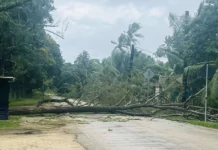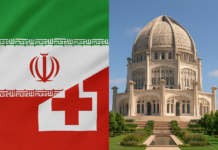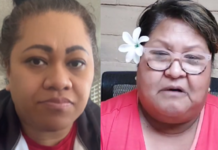The Supreme Court has ruled that a report compiled by the Auditor General’s department on a school at the centre of the Lavulavu’s trial cannot be used as evidence in court.

Judge ‘E.M.Langi, presiding, said the standard of the material in the report amounted to hearsay.
The judge ruled that the Auditor General’s Report dated October 5, 2016 was inadmissible as evidence in the Lavulavu’s retrial proper.
He said the report could not be relied upon by the Crown as evidence of the truth of its contents.
On October 10, 2022, the Court of Appeal quashed convictions against Etuate and Akosita Lavulavu for obtaining money by false pretences for their private college, Unuaki o Tonga Royal Institute and ordered a retrial.
The retrial was set to run before the then Lord Chief Justice Whitten on May 8, 2023. The Crown intended to rely on a report from the Auditor General dated October 5, 2016, but on May 1, 2023, the Defendants‟ filed objections to the admissibility of the Auditor Generals Report.
The retrial was initially listed to commence in May 2023, but for various reasons did not proceed.
On August 16, 2023, Mr. Lavulavu filed supplementary submissions in respect of his objections to the Report and contended that the process by which the Auditor General produced his Report was improper, unlawful, unreasonable, irrational, procedurally unfair and is unacceptable.
Former Lord Chief Justice Whitten determined that the content of those supplementary submissions would have to be dealt with by way of a voir dire, including the calling of evidence.
The voire dire eventually began on November 7, 2023.
After considering the submissions of both parties on the scope of the voir dire, I agreed with Mrs. Fa‟anunu and Mr. Lavulavu that the evidence by Crown witness Ms. Popua Mafi may have exceeded the scope of the voir dire grounds, the judgement read.
“On December 18, 2023, amended grounds of objections were filed on behalf of the First Defendant. On 31 January 2024, I issued written directions on the scope of the voir dire”, the judgement also read.
“Before the continuation of the evidence of Popua Mafi I informed the parties that the only grounds that I would consider for the purposes of this voir dire were hearsay and unlawfully obtained evidence. I informed them that I would not be concerned with any issues of credibility or reliability, as they were matters for the trial proper,” the judge said.
The first Crown witness was Salome Lavemaau, who led the team assigned to audit the relevant TVET grants to the Lavulavu’s private college, Unuaki „o Tonga Royal Institute (UTRI) together with Lutimila Tafea and Sefita Leha.
They audited the school for the period Semester 1 of 2013, Semester 2 of 2014 and Semester 1 of 2015;
Salome’s role was to review the expenses for which the TVET grants were used. Half of the grant was to be used for teachers salaries, with the remaining 50 percent divided between teaching and learning resources.
She was provided with UTRI financial statement and receipts and noticed that the details on the receipts were inconsistent with the financial statements. The mority of the receipts were not for expenses for renovating the school which was the main purpose of this part of the grant. Consequently, when the expenses did not add up, she submitted her report in which she stated that she was not satisfied with the information provided.
The audit took three to four weeks, which was the normal period for schools. Prior to conducting the audit of UTRI, she had been involved in carrying out the audit of Ahopanilolo in relation to TVET grants. She was also involved in going out to various villages with Lutimila Tafea and Popua Mafi, to interview students whose names were on the UTRI enrolment list.
The interviews were necessary to confirm the correct number of students because when the officers discussed their findings, it was apparent that some of the names on the UTRI list were also names of students that were on the list of students for Ahopanilolo for 2015.
The interview dates, name of the interviewer and those interviewed were recorded on a worksheet. Sometimes the actual students would not be present and the person who was being interviewed was written in a bracket beside the name of the student;.
After the answers were recorded, they were read back to the student and if they were happy with those answers, the student was then asked to sign the worksheet. It was important for them to ask the students their form of payment for school fees because the UTRI documents contained different forms of payment such as student loan or by Tongan goods and so forth.
The team continued to conduct interviews, examine records and took documents from the school.
The main purpose for the TVET grants audit was to confirm the number of students that received the grant. There were two crucial questions to be answered. Firstly, did the student pay school fees and secondly, did he or she attend school? The risk was that a student could be receipted as having paid school fees, but they did not attend school. There was also the risk of a name being submitted, but there was no such student. The same could be said if reversed, in that a name on the list could show attendance but that person never paid school fees.
“The main purpose for the TVET grants audit was to confirm the number of students that received the grant,” the judge said in his summing up.
“There were two crucial questions to be answered. Firstly, did the student pay school fees and secondly, did he or she attend school? The risk was that a student could be receipted as having paid school fees, but they did not attend school. There was also the risk of a name being submitted, but there was no such student. The same could be said if reversed, in that a name on the list could show attendance but that person never paid school fees.
The first of several recommendations was that the college should pay back $553,800 because it should have received the money.
Arguments were presented to the court that the evidence gathered from the interviews were hearsay insofar as they were statements gathered from interviewees who may or may not have been the students or directly involved or had direct knowledge of the situation.
Arguments were also by the Crown that the evidence could be admitted because some exceptions were allowable.
“If the root of the evidence is hearsay, you simply cannot go around it because it infects everything that follows it or flows from it,” the judge said.
“The audit officers’ assessments are that x number of students are unreliable and there are anomalies in the TVET grant applications. And after investigating, that is interviewing students or their families and town officers, they recommend that this amount of money should not have been paid.
“When you trace back all those calculations, it comes back to the students, the names on the worksheets where an auditor says I spoke to so and so and he or she is not a real student.
“When the audit team handed the information to the Auditor General to compile his report, it‟s double hearsay. In a nutshell, the Auditor General is saying ‘my team member told me that someone told him that he did not attend school’ or ‘did not pay school fees’” and so on. The assessments themselves are informed by hearsay evidence.”







